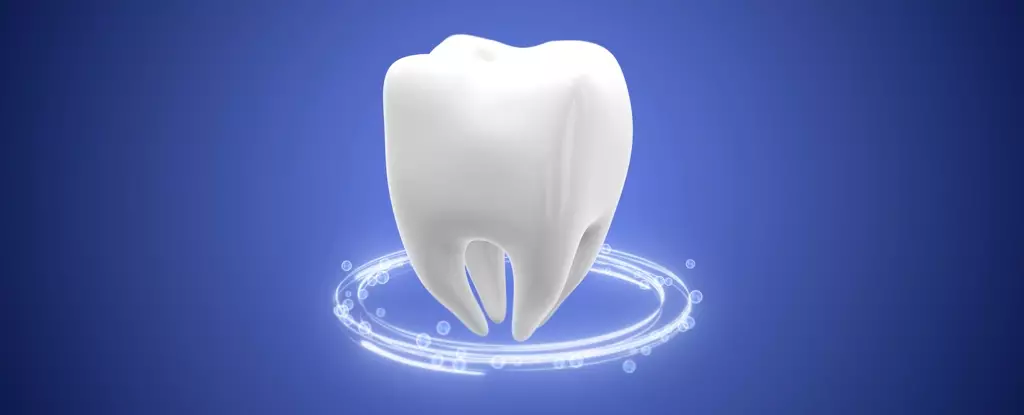In an era marked by groundbreaking scientific advancements, the concept of growing teeth in a laboratory might sound too futuristic, bordering on the nightmarish. Yet, this is a reality emerging from the collaborative efforts of researchers at King’s College London and Imperial College London. Their recent breakthrough unveils a hydrogel that fosters cell-to-cell communication, crucial for orchestrating tooth growth in a way that mimics natural processes. This innovation carries profound implications for dental care and our understanding of regenerative medicine. However, as we venture deeper into this biotechnological frontier, we must confront the ethical considerations and potentials for misuse.
The Mesmerizing Science of Regeneration
The core of this research lies in the ability to encourage the body’s cells to work in concert, forming new dental structures much like how skin heals after an injury. With the hydrogel acting as a scaffold, it allows dental epithelial and mesenchymal cells derived from mice embryos to proliferate and integrate into the jaw. The implications are staggering: imagine a future where tooth decay or damage is no longer treated with fillings or implants, but with the body regenerating its own teeth. Xuechen Zhang, a Ph.D. candidate in Regenerative Dentistry, paints a compelling picture of biologically compatible teeth that not only outlast current alternatives but also eliminate the risks of rejection often associated with implants.
While this paints an idyllic scene of dental health, we must critically assess the steps needed to transition from lab to living mouths. Finding ways to replicate this environment in human biology stands as a significant challenge. The promise of dental restoration needs to be balanced against the reality of executing such procedures safely and effectively. The ambition to integrate lab-grown teeth into our bodies reflects a broader vision for medicine, wherein the boundaries of healing are expanded. But are we ready for this bold new world?
Nature’s Wisdom: Lessons from Tooth-Reggrowers
One of the most fascinating aspects of this research is its connection to nature. Various species possess an innate ability to regrow teeth effortlessly, a talent humanity has long envied. The quest for biological enhancement leads us to study these natural processes, asking how they can not only inform our practice of dentistry but also push us toward a more sustainable future in healthcare. The backdrop of this scientific pursuit provides an opportunity, not merely to emulate nature but to respect and understand its complexity.
The investigation into methods like antibody treatments for anodontia highlights the necessity of viewing oral health through a broader lens. The implications of missing teeth reach into overall physical well-being, suggesting a direct line between our dental health and systemic issues. We cannot ignore the significant role socioeconomic factors play in oral healthcare access as we move toward high-tech solutions like lab-grown teeth. Will these advancements only serve those privileged enough to afford cutting-edge treatments, or can we strive for equitable access to dental innovations?
Ethical Quandaries and the Dystopian Possibilities
Yet, with progress comes significant ethical quandaries that cannot simply be brushed away with enthusiasm for innovation. As we inch closer to biological miracles, we must grapple with scenarios that verge on the dystopian. If lab-grown teeth become commercially available, could they lead to exploitation? Will insurance companies prioritize treatments based on profit margins, leaving the underprivileged scrambling for care? The intersection of biotechnology and industry raises pressing questions about who truly benefits from these advancements and at what cost.
The journey toward regenerating human teeth through sophisticated techniques could revolutionize dental care, but it is crucial to navigate these waters thoughtfully. The groundwork laid by researchers today offers tantalizing glimpses of a brighter dental future, but it also beckons us to take stock of the society we wish to create. Balancing scientific possibilities with ethical responsibilities is not just an academic concern; it’s a societal imperative as we stand on the brink of an extraordinary leap forward in dental care. The future of lab-grown teeth could be a blessing—or if mishandled, it might well turn into a chilling curse.

